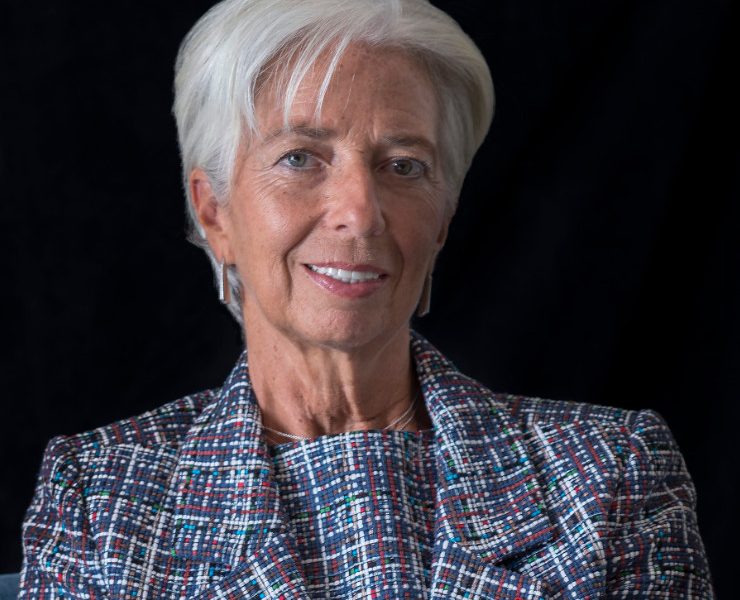The Governor of the Bank of Botswana, Moses D Pelaelo, in his capacity as the Governor and representative of Botswana at the Non-Executive Board of the International Monetary Fund (IMF), accompanied by Bank senior staff, participated in the Spring Meetings of the International Monetary Fund (IMF) and World Bank Group (WBG) in Washington DC (USA) from April 8 – 14, 2019. The Governor took part in the meetings of the International Monetary and Financial Committee (IMFC) and the IMF’s Africa Group 1 Constituency, which comprises 23 Sub-Saharan Countries.

The meetings deliberated on, among others, recent economic and financial developments, prospects for global economic growth, challenges and the related policy responses. It was observed that the global economy expansion continued, but in a delicate phase and grew at a slower pace than earlier anticipated. The second half of 2018 experienced slowdown in global economic activity, with softer momentum expected to continue into early 2019. This moderation in global growth was as a result of trade tensions, tightening of financial conditions and various country specific factors. For example, Chinese economic growth declined due to a combination of increased trade tension with the United States of America and needed regulatory tightening to rein in shadow banking. The euro area lost momentum due to weakened consumer and business confidence.
Trade tension also adversely affected business confidence, and thus worsening financial sentiments, resulting in the tightening of financial conditions in both emerging markets and advanced economies, weighing down on global demand.
Global growth is projected to decrease from 3.6 percent in 2018 to 3.3 percent in 2019, before firming up again in 2020 to 3.6 percent. The respective growth rates for Sub-Saharan Africa are 3 percent, 3.5 percent and 3.7 percent. However, there are downside risks to these growth projections. These include amongst others; trade tensions which could flare up again thereby hampering confidence, investment and growth; continuing policy uncertainty, deeper than envisaged slowdown in China; a “no-deal” Brexit, tightening financial conditions, geopolitical risks, high public and private debt levels, as well as heightened financial vulnerabilities.
In order to protect and secure the projected growth levels, it was observed that there was need for multilateral cooperation, including to preserve and modernise an open rule-based trading system; implement structural and fiscal reforms, well-tailored to country needs that could boost productivity, resilience, medium-term growth and inclusive economies. It was observed that medium-term growth continued to be moderate, mainly due to low labour productivity and population aging, especially in many advanced countries, while policy space remained constrained against the background of high public debt levels and heightened financial vulnerabilities.
In her address to the Plenary Session on the IMFC, the IMF Managing Director, Christine Largade, emphasised the need for renewing multilateralism based on three complementary and reinforcing policy actions. These being domestic policies aimed at building economic resilience and promoting economic opportunities for all; encourage global cooperation that would provide a more even playing field for all participants; and joint efforts in addressing global challenges, such as climate change, demographic shifts as well as tensions emanating from conflicts and migration.
The IMF committed to a comprehensive Global Policy Agenda to support its members, in collaboration with various stakeholders, to enhance resilience and secure sustainable higher growth through tailored policy advice and, where needed, financial support for balance of payments needs; strengthen debt sustainability and transparency; promotion of policies to foster inclusion and opportunities for all; upgrade global cooperation and facilitate global solutions to global challenges through macroeconomic analysis and policy advice.
The Governor also attended several briefings and seminars including; Sub-Saharan Africa Regional Economic Outlook; Africa Caucus meeting with the IMF Managing Director; Developing More Effective and Equitable Strategies for Domestic Resource Mobilisation; SACU workshop on “The Impact of Public Sector on Growth and Jobs”; Small Medium Income Countries Seminar on “Moving up the Value Chain: Economic Diversification and Enhancing Existing Strength in Sub-Saharan Africa”; Boosting Investment in People and Infrastructure; and the Fifth Annual Conference on “Taxation Challenges in Driving Digital in Africa”.

